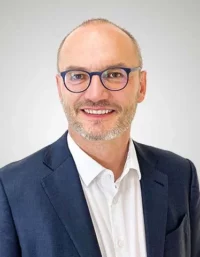Jan Berger, Germany
He is the Founder and CEO of Themis Foresight, a corporate foresight consultancy and business think tank based in Berlin, Germany.
He leads efforts to help organizations anticipate and navigate emerging trends, opportunities, and risks across the business and economic landscape. Through scenario planning, strategic workshops, and the design of organizational change processes, he supports corporate leaders and policymakers in shaping resilient and future-ready strategies.

